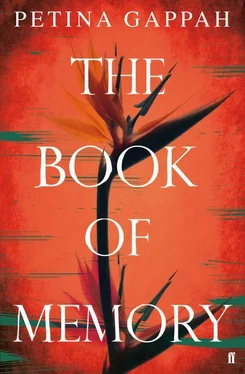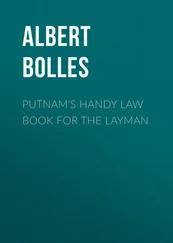Joyi has read them all. With all the treachery of my imperfect recall, the notebooks have helped us to construct our collective memory. Joy marvels at what I remember. ‘What you have here is a book of memory,’ she said.
‘Isn’t that in Shakespeare?’ I said.
‘It’s in the Bible,’ she said, ‘The Book of Malachi. “Those who feared the Lord spoke to one another and he gave attention to them and a Book of Memory was written before Him.”’
Joy told me something that I had forgotten, or perhaps had never known. ‘Baba says she chose all our names. She never regretted us.’
‘Just look at what she named us,’ I smiled. ‘Gift and Joy.’
‘Memory and Moreblessings,’ said Joy.
We talk about the past, but when the pain is too much to bear we reach for other subjects. Joy has told me about what it means to be in her order. She is a female Jesuit. She has told me about Ignatius of Loyola, who says that to be spiritual means to listen to the deeper levels of our experiences, to the knowledge that there is something good and worthy to be found even in suffering. That God means for us to find meaning in things that happen to us, even the very worst.
She has chosen to respond to our past by choosing to see it as a mysterious way in which God operates. There is a neat and terrible logic to the idea that these were no random events at all, but a pattern drawn by an unseen hand. But no god can be that terrible, that vengeful. That God is not relentless or sardonic enough — but maybe something like the Moirae, the three Fates spinning for each man the thread of life, measuring it out and then snipping it with those abhorred shears at the appointed time.
It makes more sense to think that it is that ngozi reaching out from the past. Anything else is too horrible, the idea of a knowing hand directing all of this merely to put me in prison to learn a life-affirming lesson; that this all happened so that I could find a sense of purpose behind bars.
I have not said any of this to Joy, and perhaps I never shall, for the simple reason that I love her. But it makes more sense for me for all of this to have been a random series of things that happened, with no celestial hand to direct any of it.
I have been obsessing over the moments, small in themselves, that brought me here. I see in my mind’s eye my father, wandering into the Harare Gardens and pausing to look at the statue of the dead soldiers. I see Lloyd, also stopping and looking at that same statue, those two thoughts occurring to both men at the same moment and leading them to that fateful union. The cancelled hockey match, and coming home to find Lloyd with Zenzo.
We also talk about Lloyd.
When I think about Lloyd now, it is not those difficult first days that I see. It is not even the tumult of our life after Zenzo. Instead I think of our drives to Nyanga, I think of going to bookshops. I think of the day that we buried Poppy in Matopos. That period of equilibrium that came after my return home. Because what I had with Lloyd was love. There was love and warmth and generosity of spirit. I was smiling when I recalled our trips to the Archives.
‘You must have loved him very much,’ Joy said.
In the bare simplicity of her words, I recognised a truth that I had long run from. I think that handing me to Lloyd was a leap of faith for my father. I don’t think that it was such an extraordinary leap. He had seen what everyone saw as soon as they met Lloyd. He had seen his warmth, his generosity, and his shining goodness.
Was it Pericles who said that grief is felt not in the want of what we have never known, but rather in the loss of that to which we have been long accustomed? Lloyd would know. That is the way it is with me. I find I grieve for my parents as remembered persons. But it is for what I have been long accustomed to that I grieve the most. It is for Lloyd that I grieve the most. I think over the four phases of my relationship with Lloyd: the distance and uncertainty of the first years, then the gradual tranquillity, the turmoil of Zenzo and the bitter aftermath, and the new equilibrium after I returned. He gave me an understanding that took me outside of myself, that there was a life beyond things; there was an existence that went on long after the self had gone.
A line from my mother’s favourite song came back when I was with Yeukai and the children today, about a summer’s day, and placing flowers on old family graves.
If I ever leave, I will drive out to Matopos. Vernah managed to get Alexandra to tell her that Lloyd’s ashes were scattered just where I thought they would be, and where he said he wanted to be when he died, at World’s View in Matopos.
That is where I will go first, to Matopos, to throw flowers over the place that he loved the most. Not funeral flowers, not lilies, or carnations, or roses. I will give him strelitzias, birds of paradise with long, strong stems and orange and purple plumes, the flowers that I bought on the day that he died. I can see them now, blazing with colour in the air, purple and orange against the blue sky, falling from every direction that I throw them, falling to the ground of his resting place. If I ever get out, I will throw birds of paradise from the top of the world.
That I managed to reach this last page is due to the support of the ace professionals who nursed this book to life, and the love and support of my friends and family. I must acknowledge above all others the wonderful people at Faber, particularly my editors, Mary Morris and Silvia Crompton, who managed to combine their enthusiasm for this novel with forensic evisceration of it; Walter Donohue, who wrote a brutal but kind assessment that lifted me out of a very tricky place; and Hannah Griffiths, who poured sunshine into the gloom. I also acknowledge with gratitude Sophie Portas, drumbeater of First Chimurenga proportions; Donna Payne for the breathtaking cover; Stephen Page, my infinitely patient and abiding publisher; and Lee Brackstone, poor thing, who aged quite visibly with each draft that he read.
I also wish to thank my former agents, Claire Conrad and Rebecca Folland at Janklow and Nesbit, and also Kirsty Gordon, for shepherding me into the world and linking me to Mitzi Angel in New York, Sylvie Audoly in Paris, Catherine Bakke-Bolle in Oslo, Luigi Brioschi in Milan, Martjin David in Amsterdam, Päivi Koivisto-Alanko in Helsinki and Charlotte Weber in Stockholm, wonderful visionaries who saw a novel even before one existed, and who kept faith with me even as I struggled to keep mine with them.
I also thank my current agents, Cathryn Summerhayes and Raffaella de Angelis at WME, who truly make me feel like I am their only author. And if there is such a thing as a literary godfather, mine would be Eric Simonoff. Thank you, Eric, for being there at the crucial moments: for where you go, I will go and your people shall be my people.
In Geneva, I wish to thank my old boss, Frieder Roessler, and my current bosses, Niall Meagher and Leo Palma, who made it possible for me to move back to Zimbabwe for three years to write while guaranteeing my security. Thank you, truly, for the best of both worlds.
In Amsterdam, I want to thank Nederlands Letterenfonds, the Dutch Foundation for Literature, for the beautiful apartment on the Spui in which I wrote a crucial part of this book in the summer of 2011. In Den Haag, my profound thanks go to Ton van de Langkruis, director of Stichting Writers Unlimited, whose invitation to three memorable literary festivals in Aruba, Curaçao and Sint Maarten finally convinced me that I may have written a novel that other people might actually want to read.
In New York, I am grateful to the brilliant minds I met as an Open Society Fellow in 2012, particularly those belonging to Deprose Muchena, Tawanda Mutasah, Leonard Bernardo, Stephen Hubbell and Glen Mpani. That crucial year of travel and reflection on questions of spirituality and religion affirmed my commitment to writing the truth about my people in all their beauty and ugliness, in all their maddening complexity.
Читать дальше












